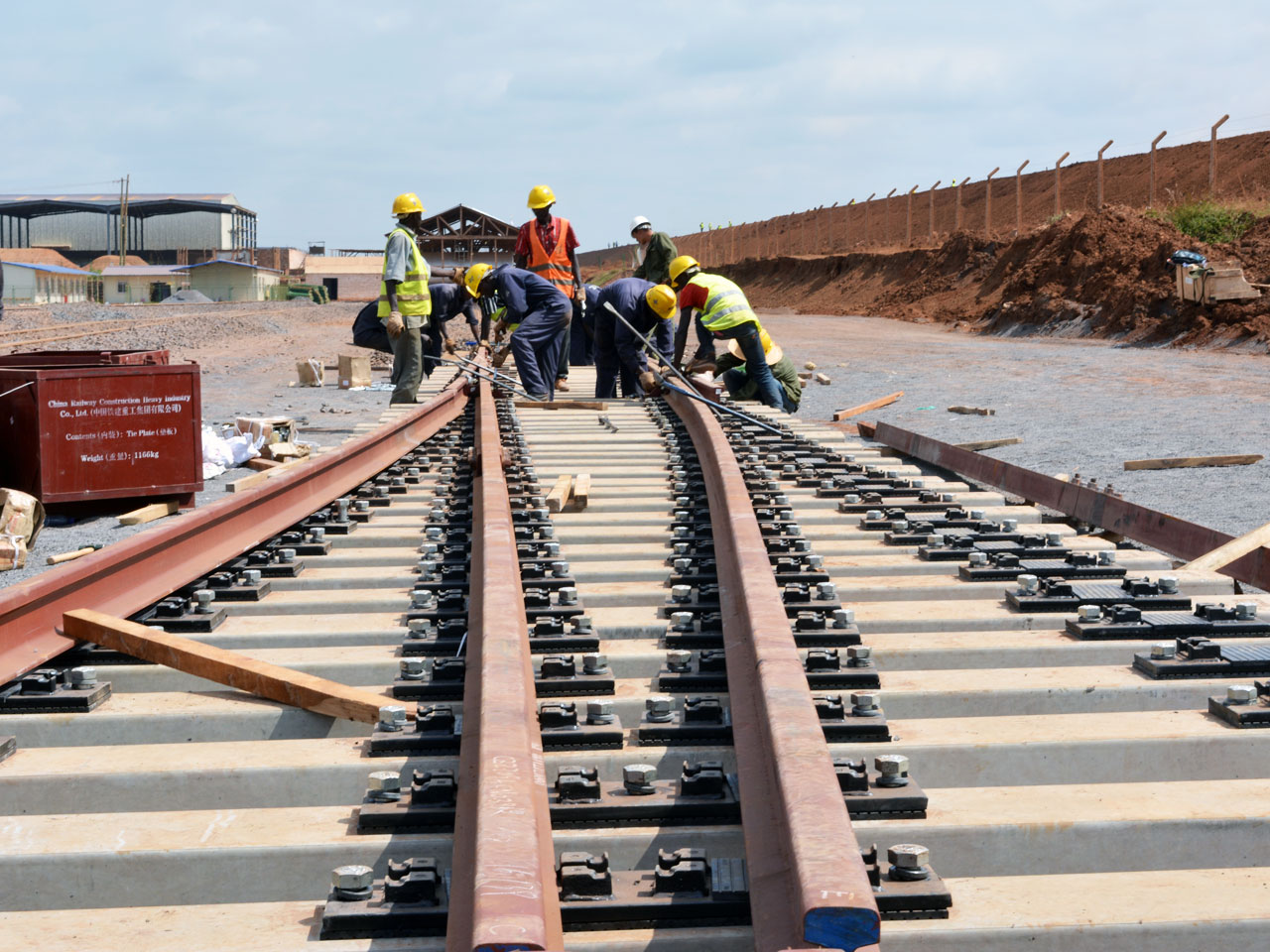Nairobi October 9, 2020.When Kenya secured a $3.2 billion loan from China in 2014 to construct the Standard Gauge Railway (SGR) connecting its capital Nairobi and the port city of Mombasa, critics termed the project costly and worried about its debt burden on Kenya.
The agreement was always deemed overpriced by independent observers and there have long been questions about the how the deal was structured, but now in the middle of a growing global economic crisis those questions have become more pointed and urgent about the very financial viability of the project.
There’s also the question of whether Kenya will be able to repay the Chinese loans which have topped $4.7 billion after the line was expanded in 2015 for another $1.5 billion by 75 miles to Naivasha, a town northwest of Nairobi, in the Rift Valley.
Two weeks ago, Kenyan lawmakers tabled a report in parliament recommending the government renegotiate the terms of the Chinese loan for the SGR “due to the prevailing economic distress occasioned by the effects of Covid 19″. This has precedent, Ethiopia, another recipient of Chinese infrastructure loans, has renegotiated its Chinese railway loans.
In the same report, the lawmakers recommend that the government renegotiate the SGR operation agreement, “by planning to reduce operation costs by at least 50%”. It has been difficult, the SGR operators had to halt its passenger service for nearly three months due to concerns about the potential spread of the pandemic.

The China Road and Bridge Corporation, which constructed the railway, operates the railway’s passenger and cargo service through its subsidiary, the Africa Star Railway Operation company. In the three years the SGR has been in operation, Africa Star Railway Operation’s expenditure has always exceeded revenue, and the Kenyan taxpayer money has to fill the gap to sustain the company’s operations.
A report by Kenya’s transport ministry tabled in parliament in 2018 says the railway made a loss of KSh9.8 billion ($90.3 million) in its first year of operation.
At the time, the government projected a profit of $46.8 million for the following year. However, a report by the ministry this year, also tabled to parliament, says the railway recorded a loss of $200 million over three years. The document says that during this period, the railway generated revenues of $230.7 million but had operational costs of $430.5 million.
The transport ministry has cited reduced limited storage capacity at a Nairobi container depot, minimum use of the city’s freight terminal, and railway charges as reasons for this performance, arguably the kinds of details a thorough appraisal should have raised foreseen.
The SGR operates both passenger and cargo services and while passengers embrace it for reducing travel time compared to buses, cargo owners shun it for reasons including higher fees and tariffs, additional time clearing goods and a lack of last-mile delivery, when compared to trucks.
But the SGR represents much more than an expensive railway for Kenya. Despite the naysayers it was positioned as a highlight of a modern 21st century country under the leadership of president Uhuru Kenyatta and opened to some fan fare in 2015.
However the SGR has now become one of several avatars for Chinese-owed debt in Africa. With loans of $6.37 billion as at December 2019, China is Kenya’s largest bilateral lender, with a range of different agreements.
Kenya’s debt was 65.7% of its GDP by the end of June. In May, the International Monetary Fund raised the country’s risk of debt distress to “high” from “moderate” due to the impact of Covid-19, “which exacerbated existing vulnerabilities”, it said.
The writing was on the wall for the end of the relatively easy debt when Kenyatta returned home from China empty handed after reportedly failed to get more funding to extend the railway to the western Kenya town of Malaba on the border with Uganda. With rising concerns over a debt burden already, it is hoped financial concessions from China as demanded by the lawmakers may buy Kenya time.


Leave a Reply